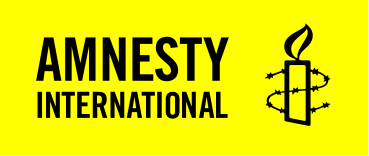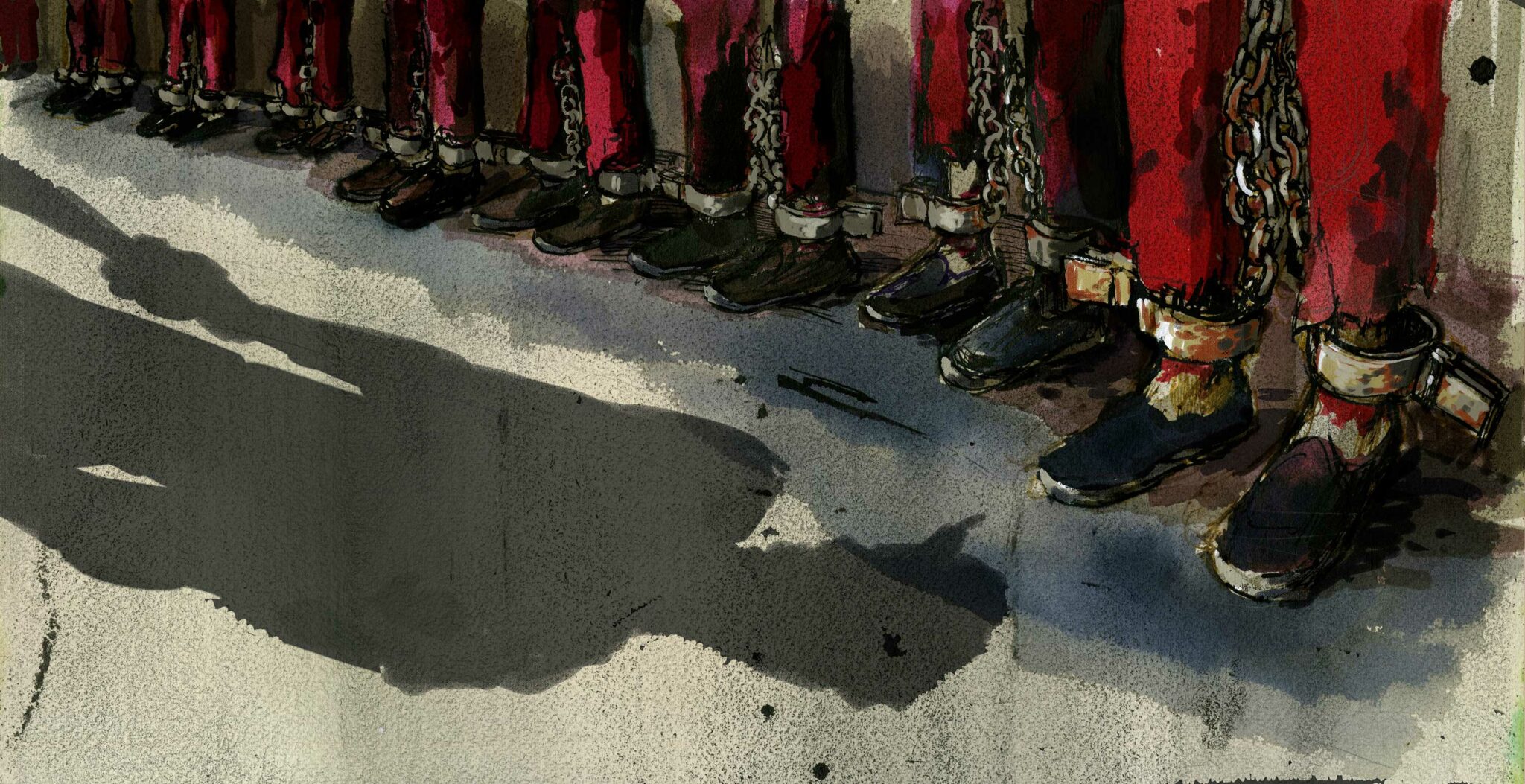Night duty
At around 9 or 10pm, detainees were given a few moments to wash and use the toilet, and then they went to bed. Talking was forbidden at night. Some former detainees reported being made to sleep head-to-toe so they would be unable to communicate with each other at night. [[[Amnesty International interviews.]]] “You couldn’t talk. They regulated [how we were positioned when we] slept so that we couldn’t talk – your head was [positioned] next to someone’s feet,” Zarina told Amnesty International. [[[Amnesty International interviews.]]]
All detainees were required to “work” one- or two-hour shifts monitoring their cellmates every night. [[[Amnesty International interviews.]]] The shifts were spent either walking continuously back and forth or around the cell, or sitting still on the edge of the bed. One former detainee reported that he was instructed to reposition people’s heads or lower the bedding if someone was not sleeping with their face visible and facing the camera. [[[Amnesty International interviews.]]] Some former detainees claimed this policy was instituted to ensure no one killed themselves. [[[Amnesty International interviews.]]] Several had no idea why they were on duty.
Aiday, who said he was detained for allegedly failing to get permission to travel domestically, told Amnesty that at night, detainees were responsible for monitoring each other and for ensuring their faces were always visible to the CCTV cameras in the cell:
The lights [in the cell] were always on. At 10pm we had to lie in bed. Two cellmates were on night watch. From 10 to 12, 12 to 2, 2 to 4, and 4 to 6… these two people are [always] walking between the window and the door. Their job was watching us. At night we had to sleep with head facing the camera and face uncovered. And, if not, they woke us and put us in the right position. [[[Amnesty International interviews.]]]
Even when not on duty, it was difficult to sleep because of regular noise from the loudspeaker in the cell and because the lights in most cells were always on. [[[Amnesty International interviews.]]] Saken told Amnesty he never got more than a few hours’ sleep at night during the year he spent in a camp:
Normally, we slept from 10pm to 5am. And we are on watch for two hours a night… And cadres and police came into our cells [late at night a couple of times a week] and ordered us to write confessions… And the light was on 24/7. It was a strong light and it disturbed our sleep. We never got enough sleep… They claimed it was [a school]… but how can you learn anything if they don’t let you sleep? [[[Amnesty International interviews.]]]



